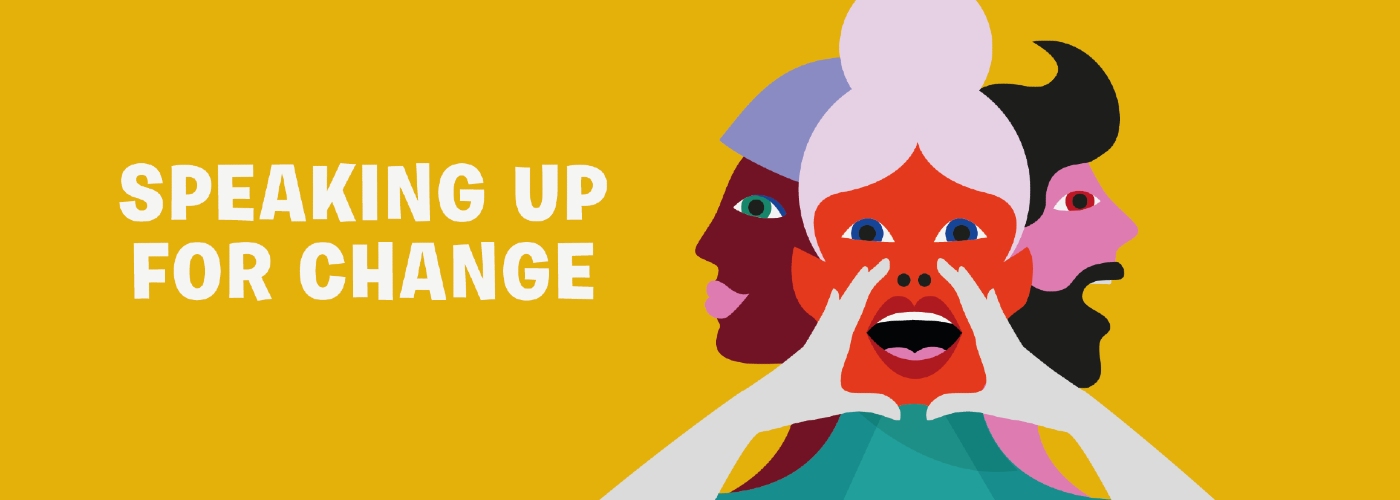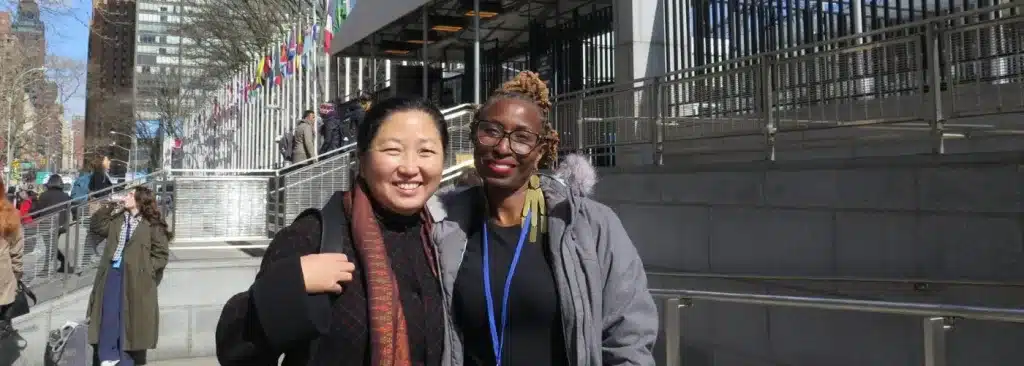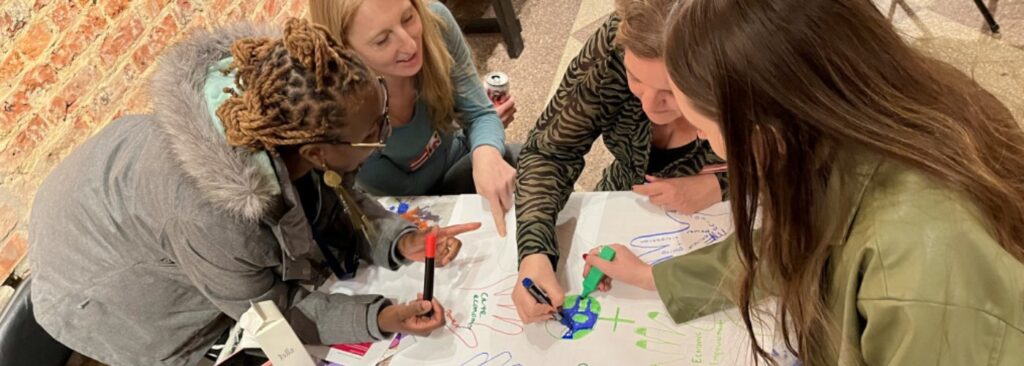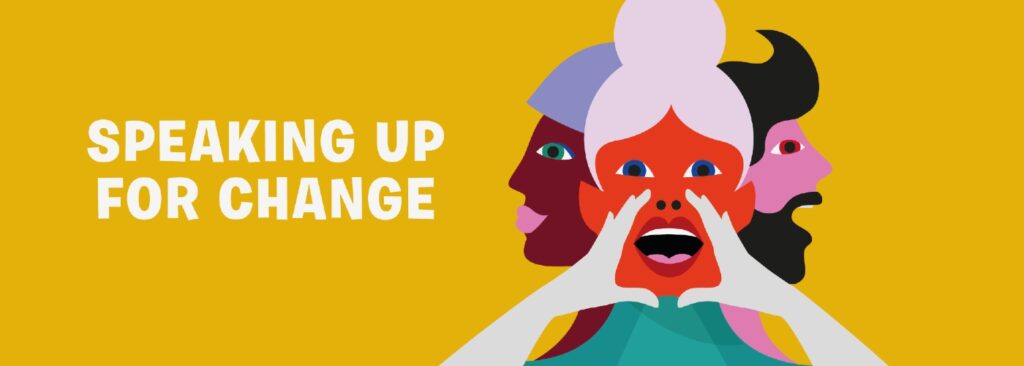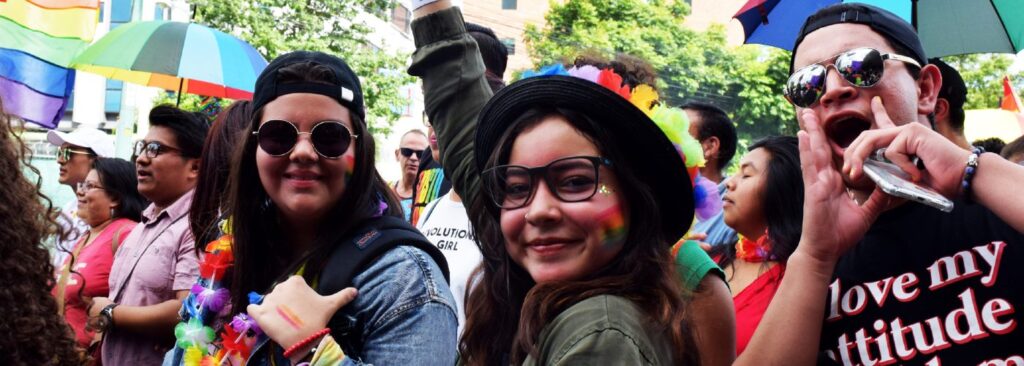Recently you read about the efforts of the Free to be Me partnership under Hivos’ leadership to queer the international advocacy space of the Commission on the Status of Women (CSW) at the United Nations in New York. Representatives from Hivos’ Free to Be Me and We Lead programs also organized several informative events, such as the first ever feminist foreign policy pub quiz. And they were equally active in the space for negotiating the outcome document, the main concern at the CSW. To this end, we worked in partnership with the Women’s Rights Caucus, among others.
About the UN Commission on the Status of Women
The United Nations Commission on the Status of Women (CSW) is the main intergovernmental body dedicated to gender equality. During the Commission’s annual two-week session, representatives of UN Member States, civil society organizations, youth and UN entities gather at UN headquarters in New York. They discuss progress and gaps in the implementation of the 1995 Beijing Declaration and Platform for Action, a key global policy document on gender equality, and the 23rd special session of the General Assembly held in 2000 (Beijing+5), as well as emerging issues that affect gender equality and the empowerment of women and girls. Member States agree on further actions to accelerate progress and promote women’s and girls’ enjoyment of their rights in political, economic, and social fields.
The 67th session of the CSW came to a close on Saturday, March 18, 2023, after negotiations on the text of the agreed conclusions stretched into the early hours after the official final day of the conference.
The agreed conclusions, a document negotiated by Member States, provide policy recommendations around the priority theme of this year: Innovation and technological change, and education in the digital age for achieving gender equality and the empowerment of all women and girls.
The Women’s Rights Caucus
The Women’s Rights Caucus (WRC), of which Hivos is part, is a global intersectional and inclusive coalition of more than 200 feminist organizations, networks, and collectives that advocates for gender equality at the United Nations. The Caucus welcomes the adoption of the agreed conclusions around the priority theme of this year. This includes the renewal of a global commitment to achieving inclusive gender equality, despite significant pushback on fundamental issues within this agenda. We are encouraged to see continued multilateral support to advance the human rights of women and girls in all their diversity, as reflected in this year’s outcome.
What were the encouraging results this year?
The WRC was heartened by the increased participation and engagement of young feminists in this year’s CSW, including through interactive dialogues with youth leaders and the Youth Forum, as well as involvement of the Young Feminist Caucus (YFC). In particular, we are encouraged by several references to adolescent girls throughout the CSW text, including Member States’ recognition that adolescent girls are part of the most digitally connected generation in history and can disproportionately face discrimination and violence that occurs through or is amplified by the use of technology.
We are also encouraged to see progress made in this year’s agreed conclusions in recognizing:
- The need to ensure that human rights are promoted, respected, and fulfilled in the conception, design, development, deployment, evaluation, and regulation of technologies and to ensure that they are subject to adequate safeguards in order to promote an open, secure, stable, and accessible and affordable information and communications technology environment for all women and girls.
- Strong focus on policy actions for the elimination and prevention of all forms of violence, including gender-based violence that occurs through or is amplified by the use of technologies, with particular emphasis on victims and survivors-centered approaches.
- The potential of technology to promote women’s and girls’ human rights, but also to perpetuate gender stereotypes and negative social norms, amplified and perpetuated through digital tools as well as gender bias in technology, including artificial intelligence.
- The critical role digital platforms can play as spaces where all women can advocate, mobilize and participate fully, equally, and meaningfully in public life.
- The importance of labor rights in addressing the challenges of technological change in the world of work. The conclusions also recognize the importance of addressing occupational segregation and the reality that women are more likely to lose jobs because of automation and digitalization. These barriers to women’s economic justice have not been adequately addressed in previous CSWs.
- The addition of ‘non-consensual’ when speaking of outlawing the sharing of sexual or otherwise explicit materials, which reflects the rights of sex workers while safeguarding victims of deep fakes or sextortion, both examples of gender-based violence facilitated by the use of technology, specific to the priority theme of this year’s CSW.
Furthermore, the agreed conclusions also acknowledged:
- That multiple and intersecting forms of discrimination and marginalization are obstacles to the achievement of gender equality and the empowerment of all women and girls in the context of innovation and technological change, and education in the digital age.
- The important role of digital health including digital health technologies, digital tools, telemedicine and mobile health for ensuring universal access to sexual and reproductive health-care services, including for family planning, information and education, as well as the need to protect personal information.
- That there is a pressing need to address the major impediments that developing countries and small island developing states face in accessing and using new technologies, stressing the need to close the digital divides, both between and within countries, including the rural-urban, youth-older persons and gender digital divides.
However, some fundamental issues were left out
Despite progress, we regret that fundamental issues related to the protection of the human rights of LGBTIQ+ people, the importance of technology for expanding access to comprehensive sexuality education, and the interlinkages between digital transformation and climate change were left out of the document. This goes to show how important the focus of Hivos’ largest partnerships is: LGBTQI+ rights through Free to Be Me, sexual and reproductive health and rights (SRHR) through We Lead, and climate justice through Voices for Just Climate Action.
Pushback from regressive governments
We deplore the coordinated pushback from regressive governments against the advancement of the gender equality agenda witnessed in this year’s negotiations, attempting to roll back long-standing agreements in the context of CSW. A number of Member States and anti-rights civil society actors continue to disrupt constructive and plural dialogue with attacks on previously agreed human rights language and are opposed to truly advancing a gender equality agenda.
As a feminist movement we stand with all women in all their diversity.
Disruption by anti-rights and anti-trans actors
This year we also saw anti-rights actors infringe on many side and parallel events during CSW, using discriminatory language and disruptive tactics in an attempt to co-opt, distort, and undermine women’s, girls’ and gender diverse people’s rights. We are particularly outraged by the intensified anti-trans rhetoric and mobilization. As a feminist movement we stand with all women in all their diversity, including trans, intersex and non-binary, and we remain deeply committed to fighting this worldview that is based on inequality and denying rights. As attacks to gender equality, and specifically to queer and trans persons, continue in multilateral spaces, the WRC is proud to not only be an ally, but to lead together with the LBTI Caucus an intersectional and inclusive approach to multilateral participation.
Once again – difficulties getting non-immigration visas for participants
The WRC is also concerned about increasing challenges to civil society participation in the CSW and other UN spaces, including difficulties with processing and approval of non-immigration visas for those attending CSW in person, especially for those coming from marginalized groups and Global South countries. Civil society represents communities on the ground and is a crucial resource of information, expertise, as well as a watchdog, keeping states accountable for their human rights commitments. We therefore call on all actors involved, and in particular the host country, the United States of America, to adequately address this question for next year’s CSW and all gender equality events held in the United Nations Headquarters.
As Hivos, our programs, partners and allies remain committed to advocating for our collective rights until all of us see their realities reflected in UN documents and its consequent policy implementation.

